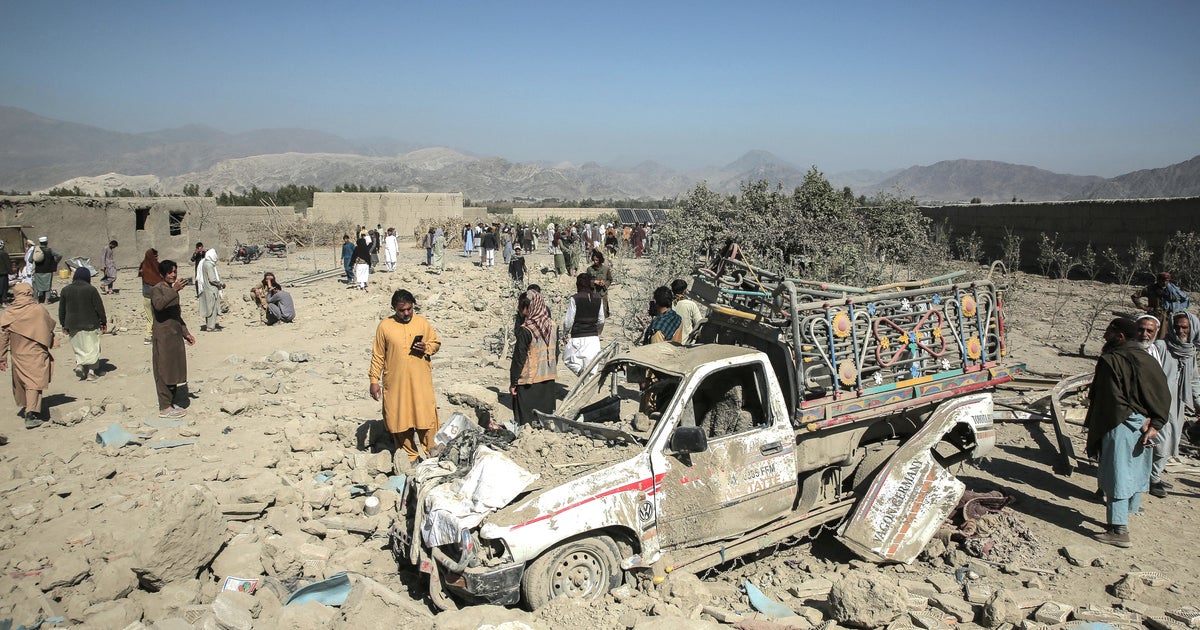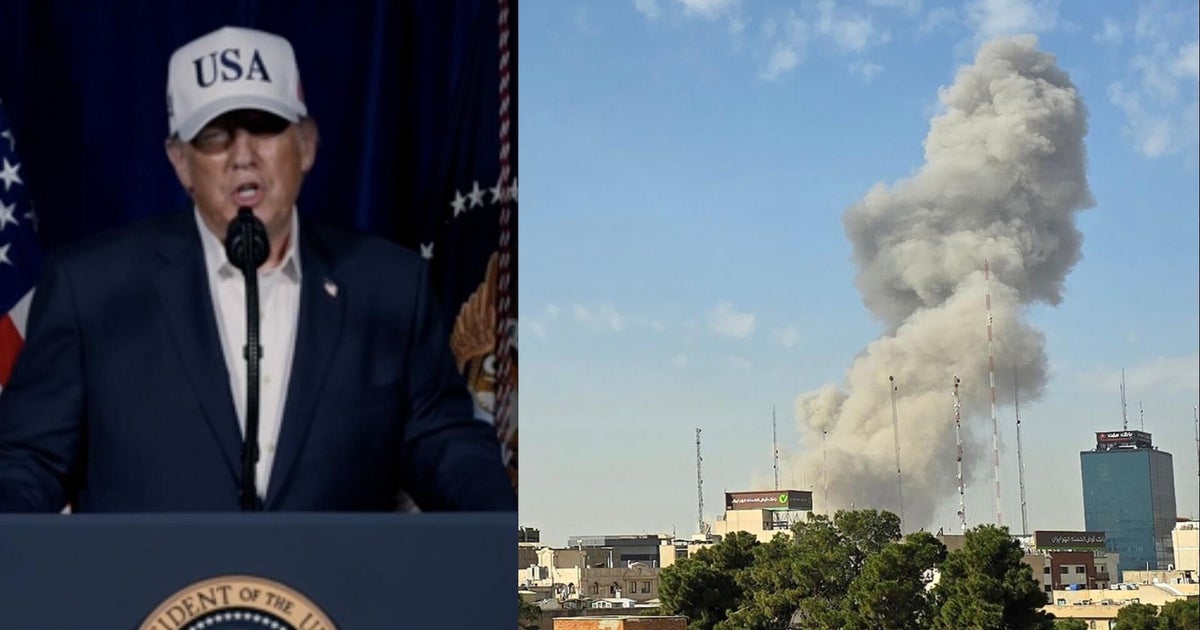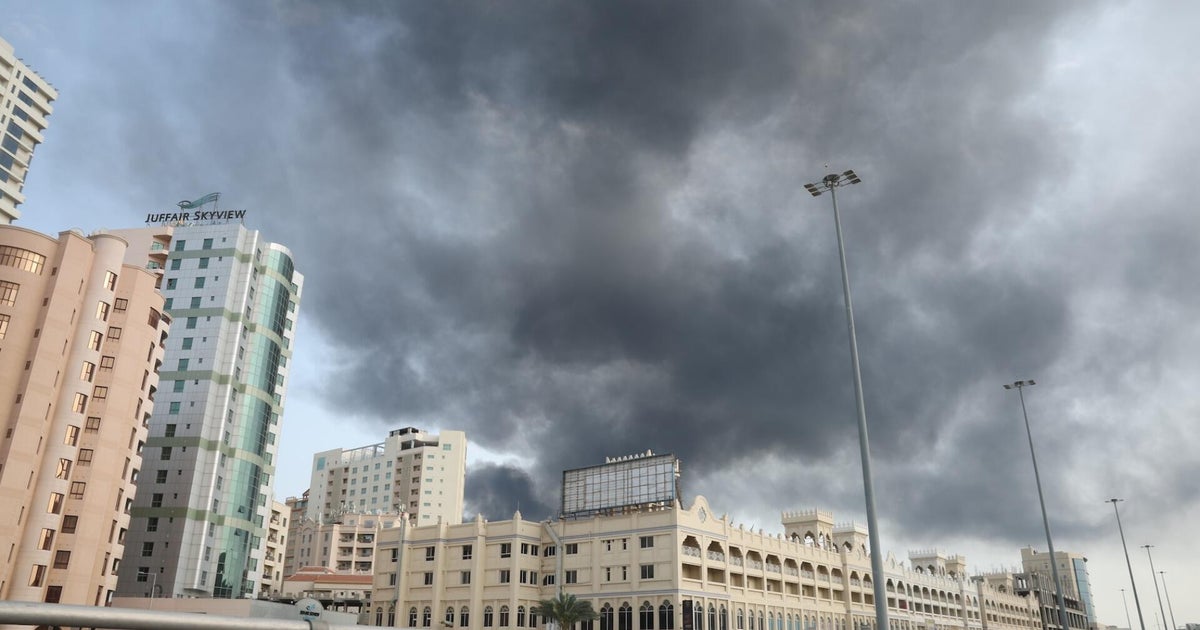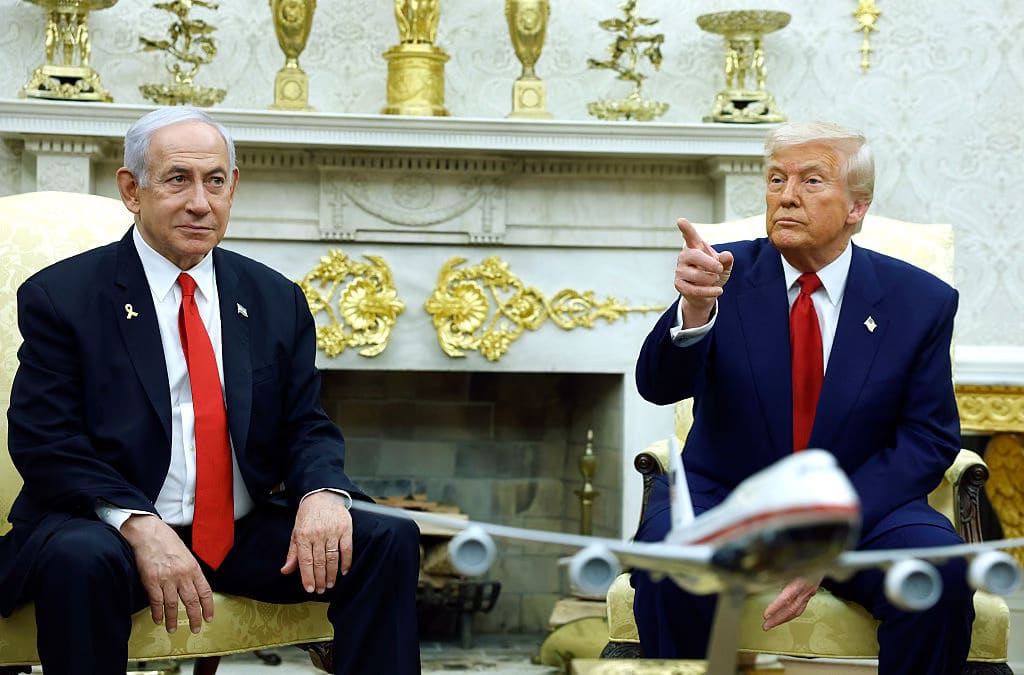US and Taliban "draft" framework for Afghanistan peace deal on ceasefire and withdrawal as President Ghani calls for talks
Kabul, Afghanistan -- Afghan President Ashraf Ghani said Monday the Taliban should "enter serious talks" with his government, as both the Taliban and Washington's top envoy touted significant progress during unprecedented negotiations in Qatar last week. A months-long diplomatic push by the United States to get the Taliban to talk to Kabul culminated in six days of meetings between the U.S. and the insurgents in Doha, but the Taliban have long refused to negotiate with the government of Afghanistan to end the 17-year conflict, branding them as "puppets." Even while engaging in the talks with the U.S., the militants have continued to stage deadly attacks on Afghan security forces.
"I call on the Taliban to... show their Afghan will, and accept Afghans' demand for peace, and enter serious talks with the Afghan government," Ghani said in a nationally televised address from the presidential palace in Kabul.
Both the Taliban and the U.S. cited "progress" over the weekend, and the U.S. envoy to the talks has said a "draft of a framework" for a peace deal has now been reached -- though the details still need to be filled in, and agreed to by Kabul.
"Only solution… is intra-Afghan talks"
Afghan authorities have previously complained of being excluded from the talks in Qatar, and warned that any deal between the US and the Taliban would require Kabul's endorsement.
"We want peace, we want it fast but we want it with a plan," Ghani said in his address Monday.
"We should not forget that the victims of this war are Afghans and the peace process should also be Afghan-led... No Afghan wants foreign troops to remain in their country indefinitely. No Afghan wants to face suicide attacks in hospitals, schools, the mosques, and parks."
Ghani spoke hours after his office said it has been reassured by Washington that the talks in Qatar remain geared towards bringing the insurgents to the table with Kabul.
U.S. special envoy Zalmay Khalilzad -- who has been leading the negotiations -- arrived in Afghanistan late Sunday to update officials including Ghani on the progress made.
"The U.S. insisted in their talks with the Taliban that the only solution for lasting peace in Afghanistan is intra-Afghan talks," Khalilzad said, according to a statement released by Ghani's office.
"My role is to facilitate" such talks between the insurgents and Kabul, Khalilzad said according to Ghani, adding that the discussions are ongoing.
What we know about the emerging deal
Sticking points remain, even before the Afghan government is brought into the direct negotiations.
Some of the more difficult points yet to negotiate are the prospect of a ceasefire and a timetable for the withdrawal of foreign troops.
U.S. President Donald Trump's clear eagerness to end America's longest war has also weighed heavy on the discussions.
The palace said Khalilzad confirmed that no agreement had been made on the withdrawal of foreign troops, adding that any such decision would be coordinated and discussed in detail with the Afghan government. The Taliban have insisted foreign troops must pull out.
Speaking to The New York Times, however, Khalilzad said his team had agreed a "draft of the framework" for a peace process with the Taliban, noting that it still had to be "fleshed out before it becomes an agreement."
"The Taliban have committed, to our satisfaction, to do what is necessary that would prevent Afghanistan from ever becoming a platform for international terrorist groups or individuals," he told the newspaper, adding that the U.S. team "felt enough confidence that we said we need to get this fleshed out, and details need to be worked out."
On Saturday Taliban spokesman Zabihullah Mujahid said that until a withdrawal timetable is decided, progress on other issues is "impossible".
The palace's statement said Khalilzad had denied reports that the issue of an interim government was raised, saying that was "absolutely wrong" and there had been no discussions with the Taliban about any future government in Kabul.
He also confirmed there had been no progress on the issue of a ceasefire.
Afghans have expressed tentative hopes about the talks tempered by fears of an American exit with Afghan security forces taking staggering losses, the government facing election upheaval, and civilians paying a disproportionate price after nearly two decades of bloodshed.
The Taliban and U.S. officials have agreed to continue negotiations, though no date has been publicly announced.



